Gold is used in many different types of electronic equipment, especially computers. With the price of gold being at an all time high, there are now numerous companies who are recovering the infinitesimally small amounts of gold. Most of the gold is found in the motherboards.
Here’s a process of gold extraction from motherboards. This process is dangerous, therefore don’t try to reproduce it at home.
Gold is found in numerous places on a motherboard: IDE connectors, PCI Express slot, PCI, AGP, ISA, and other ports, jumper pins, the processor socket, and DIMM (SIMM on older motherboards) slots.
All of these connectors are often covered with a fine layer of gold a few microns thick, deposited by flashing or plating.
So, the first stage of the experiment is to recover all these pins and connectors. We need pliers and cutters, flat and Philips screwdrivers, and liberal amounts of elbow grease...
You need a lot of pins to conduct this experiment, and that's exactly what our donor boards provided...
...along with some equipment and chemicals.
To recover the few micrograms of gold deposited on the pins, we’re going to use an electrolytic cell. The bath consists of a 95% solution of sulfuric acid. The cathode is lead and the anode is copper. The pins are placed in the copper anode, which we’ve formed into a basket shape.
By running an electrical current through the cell, using an ordinary battery charger, the copper in the anode (and in the pins) dissolves and is deposited on the lead cathode. The gold, detached from the copper, forms a sediment at the bottom of the cell. Also note that the temperature of the bath increases significantly during this process.
Once all of the gold has detached from the pins, the bath is allowed to settle. Then, we recover as much of the sulfuric acid as possible, before diluting what remains in the bottom of the electrolytic cell.
Be careful to always pour acid into water, and not the other way around! If you do it wrong, the first drops of water that touch the surface of the sulfuric acid will immediately be vaporized and could cause acid splashes.
We end up with a diluted solution of sulfuric acid, various metals (including gold), and waste that then needs to be filtered. Why not just filter the solution directly, without diluting it? Because paper filters don't stand up well to strongly concentrated sulfuric acid. That's why.
What remains in the filter is a mixture of various metals and impurities. We now dissolve everything in a mixture of hydrochloric acid at 35% and chlorine bleach (sodium hypochlorite) at 5%, in a proportion of 2 to 1.
2 HCl + NaClO -> Cl2 + NaCl + H2O
Careful! The reaction is highly exothermic and produces chlorine, a highly dangerous gas. Chlorine gas was used as a chemical weapon during the first World War, under the name bertholite.
In fact, the chlorine produced by mixing hydrochloric acid and chlorine bleach is what will dissolve the gold to form gold(III) chloride.
2 Au + 3 Cl2 -> 2 AuCl3
Now, all we need to do is filter everything once again. The filter will retain all the impurities, leaving only a gold(III) chloride solution.
To recover the metallic gold, we now need to precipitate the gold that’s in solution. For that, we use powdered sodium metabisulfite. In the presence of water, the sodium metabisulfite produces sodium bisulfite.
Na2S2O5 + H2O --> 2 NaHSO3
This sodium bisulfite is what will allow the gold to precipitate.
3 NaHSO3 + 2 AuCl3 + 3 H2O --> 3 NaHSO4 + 6 HCl + 2 Au
We let the solution settle, then we recover the brown powder collected at the bottom of the beaker. We have to be careful not to lose any--that’s metallic gold!
Now, all we need to do is to melt the powder in a crucible.
The melting point of gold is around 1064° C (1947.52 °F), so an oxy-butane torch will do the job.
And here's the result!

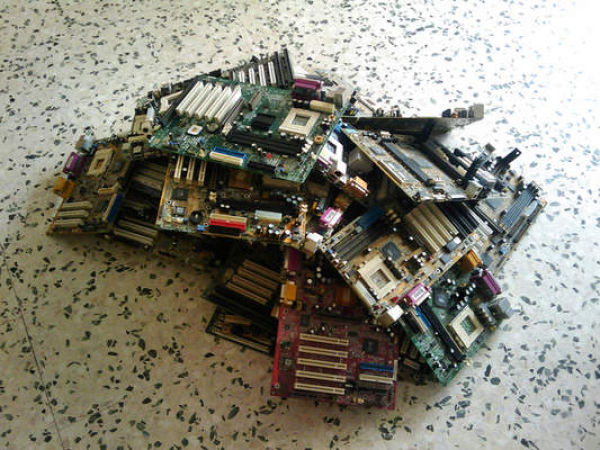
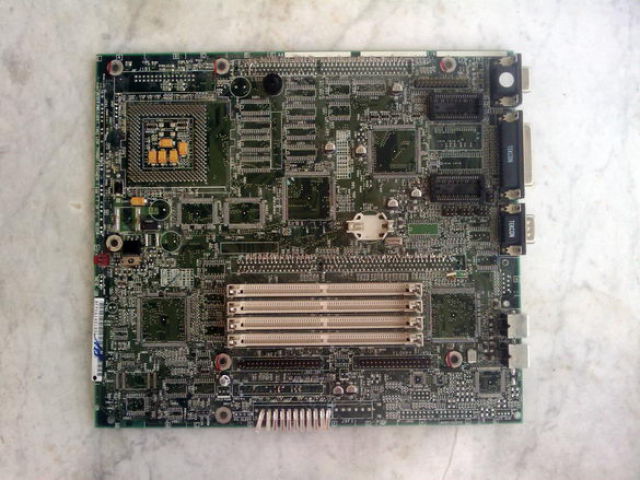
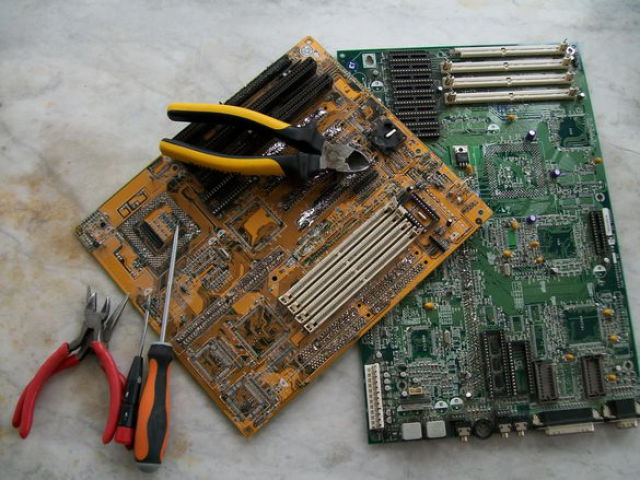
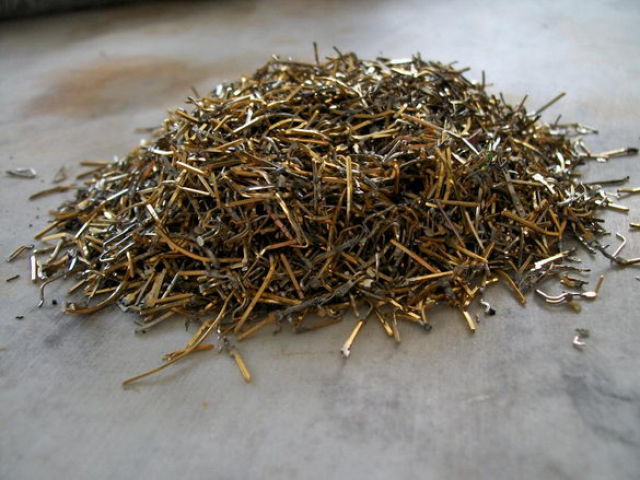
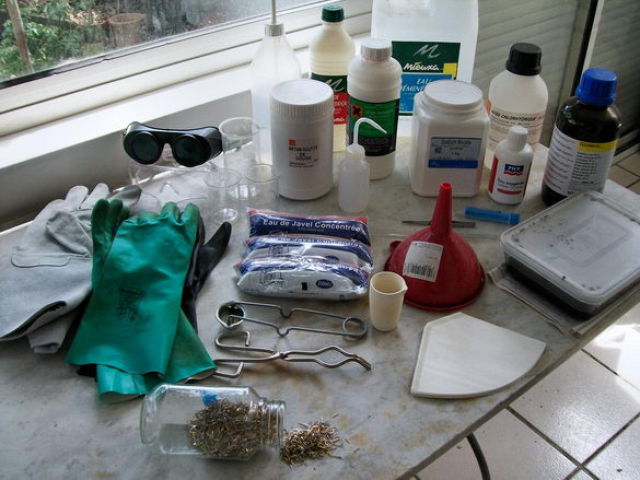
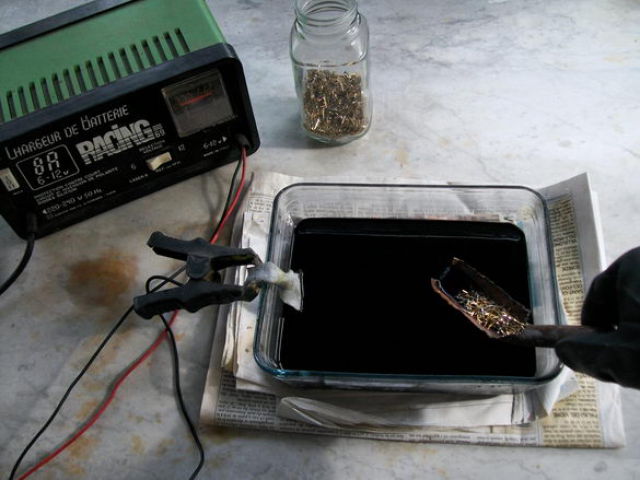
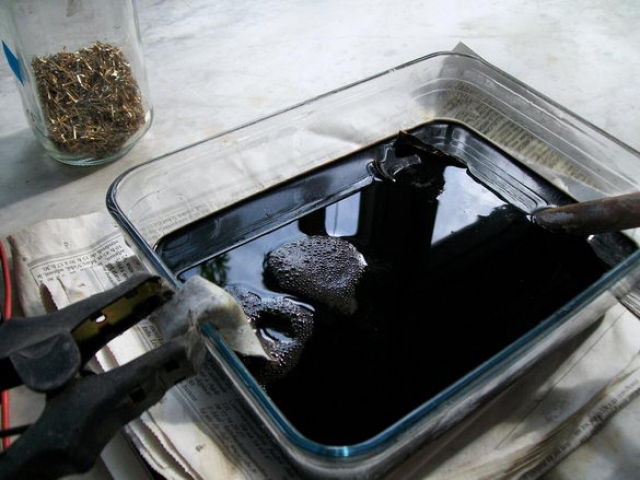
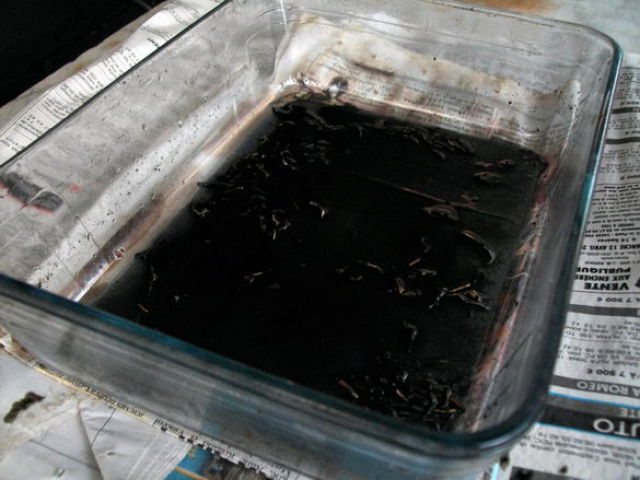
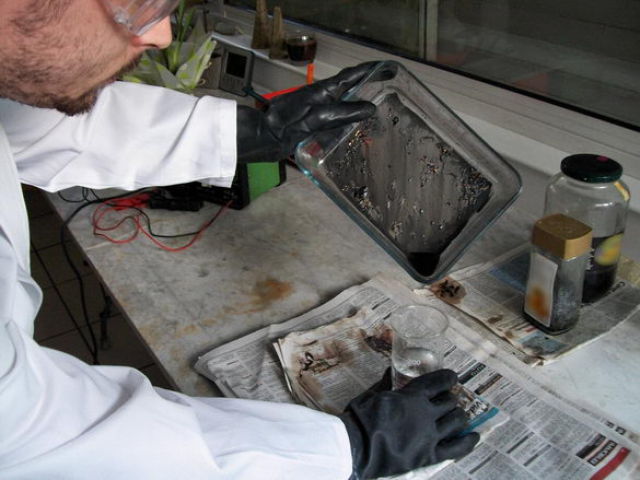
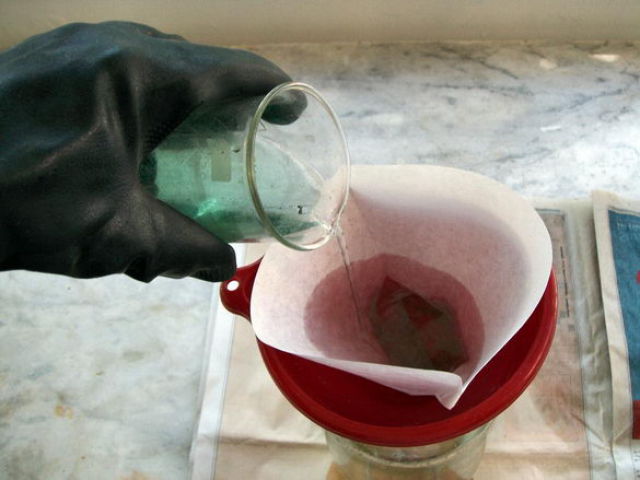
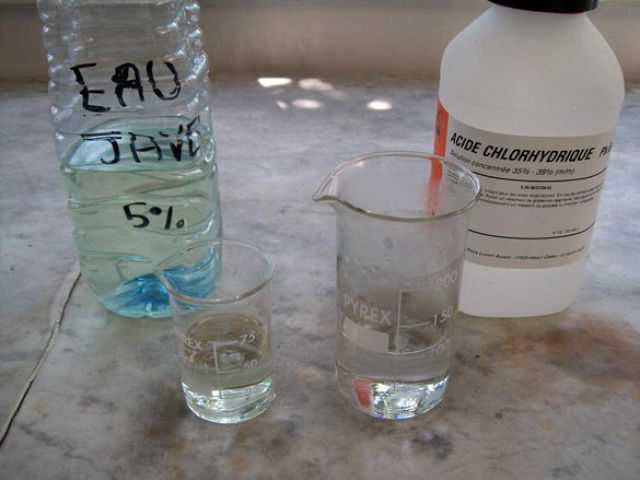
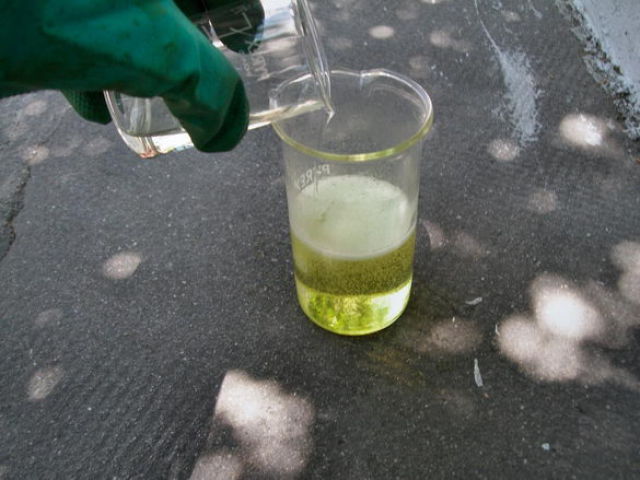
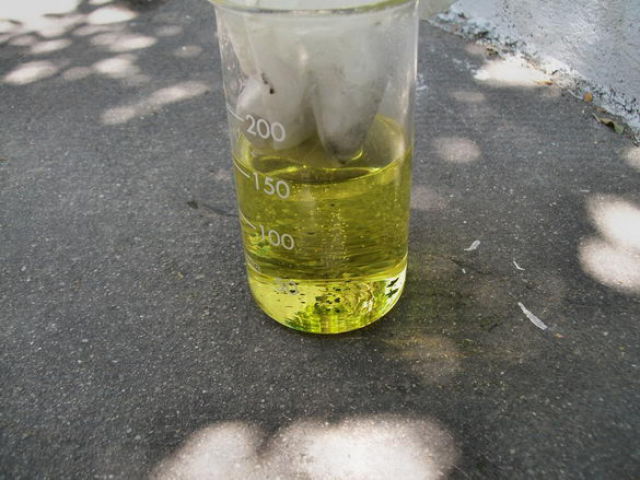
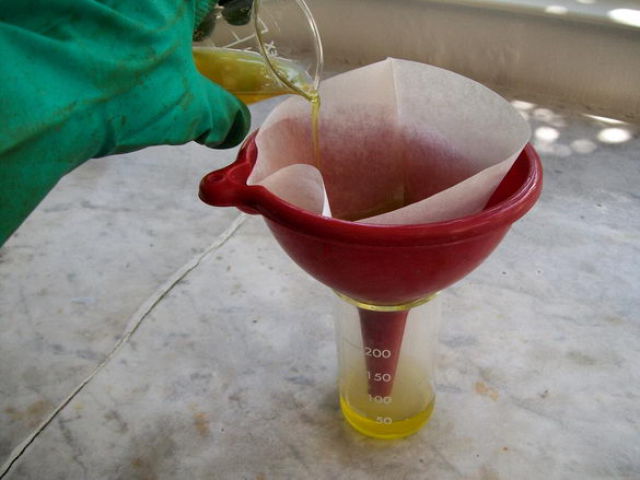
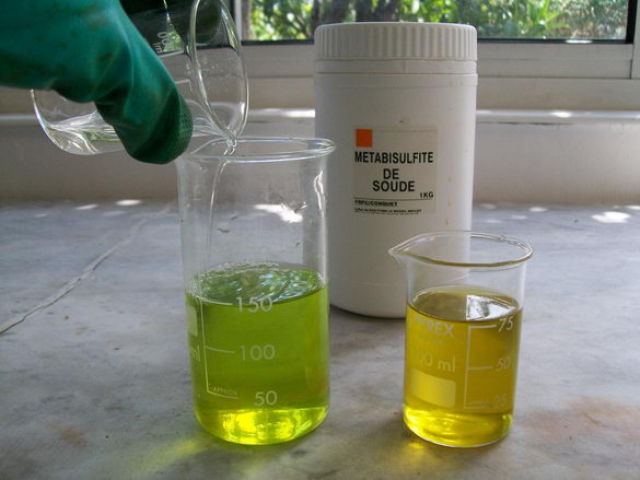
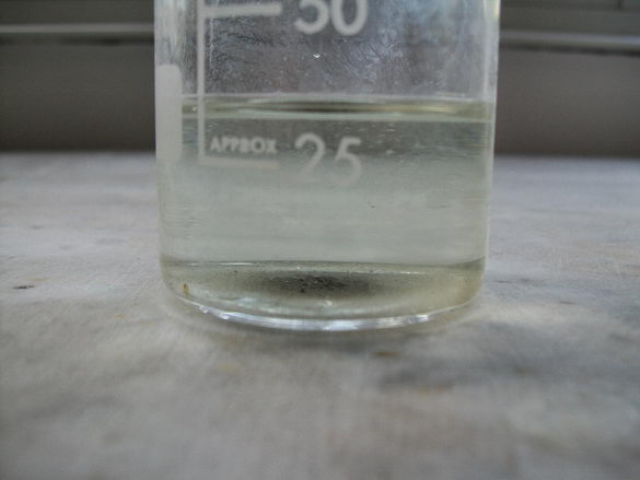
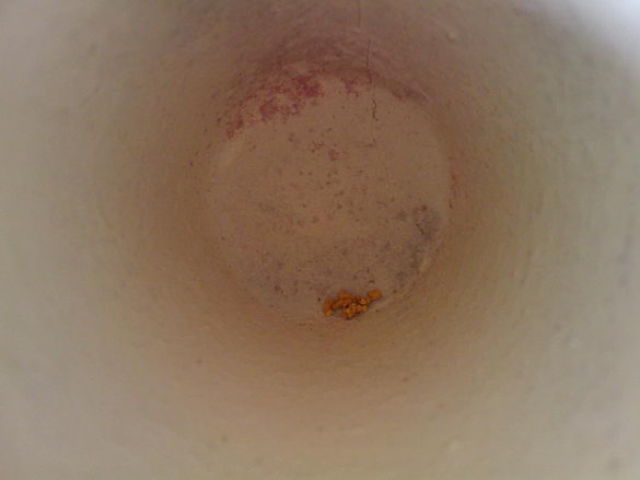
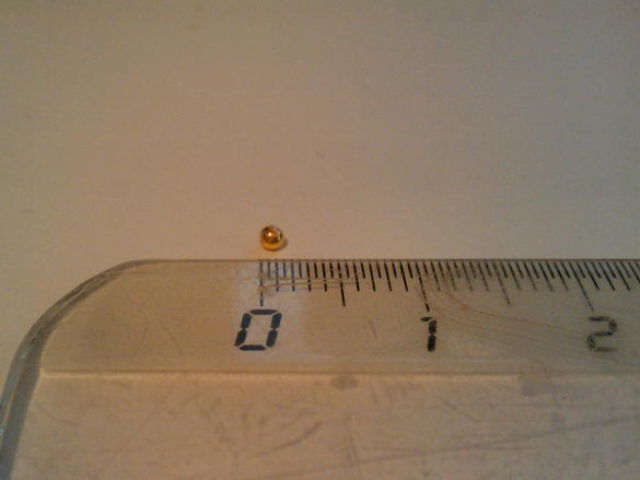



a question, does it worth? the gold can afford the cost of the chemicals and leave a gaining?
but would cost more than it makes if you dont already have the stuff??
That means I do the complete opposite!!
By the way, professionals do filtration of concentrated acids with filters made from sintered glass, not paper filters. But then you need a vacuum pump and other equipment to do it appropriate.
Not very clever to start a process without adequate equipment.
And all of you people who think it is not worth your time... your right its not you would probably just hurt yourself anyways. So keep throwing away your old electronics I'm sure someone is thanking you for it.
@or not: not everything is sold on ebay you effin nerd get outside and explore.